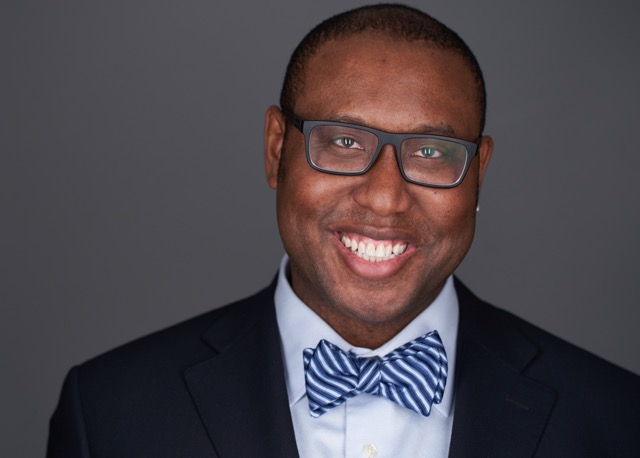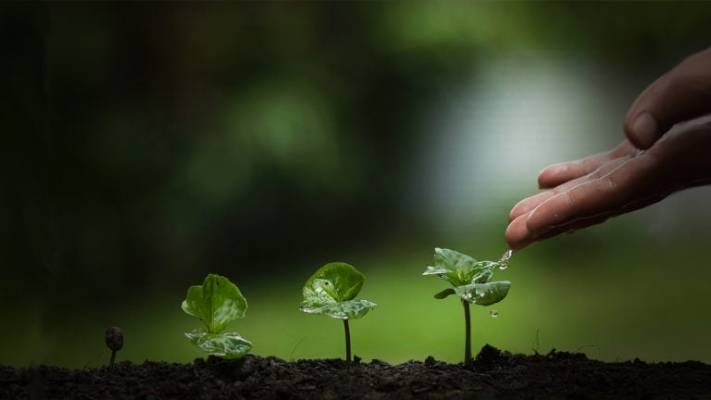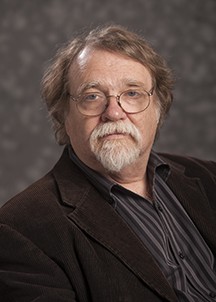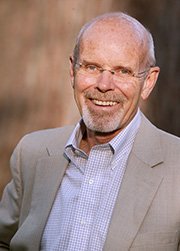Previous Public Philosophy Events
Harold Stoner Clark Lectures
Racialized Forgiveness
Feb. 16, 2021, Virtual
Dr. Cherry is an assistant professor of philosophy at the University of California, Riverside with research interests at the intersection of moral psychology and social and political philosophy. Cherry is also the host of the UnMute Podcast, a podcast where she interviews philosophers about the social and political issues of our day.
I shall introduce a concept that I refer to as ‘racialized forgiveness.’ Cases that exemplify certain conditions which I take as paradigmatic of the problem of racialized forgiveness includes instances in which: (a) Who is forgiven and not is determined by the race of the offender; (b) Praise and criticisms of forgiveness are determined by the race of the victim; and (c) Praise and criticisms of forgiveness are, at least implicitly, racially self-serving. I argue that the practice of it is morally objectionable because of its psychological origins, moral failures, and negative effects. Accordingly, in order to dodge these dimensions, I’ll claim we need to practice forgiveness differently.
Facing Down Climate Despair: Anxiety, Grief, and Action in the Age of Crisis
March 9, 2020, Samuelson Chapel
Jennifer Atkinson, PhD in English and Literature from the University of Chicago and Senior Lecturer at the University of Washington-Bothell, discusses the emotional resilience needed to come to terms with environmental loss and work toward a just and sustainable future.
Harold Stoner Clark Lectures, 2020
The Metaphysical Problem in Race Theory
Feb. 18, 2020, Samuelson Chapel
When Population Genetics Meets the Metaphysics of Race
Feb. 18, 2020, Samuelson Chapel
The Human Genome Diversity Project (HGDP) obtained the first large-scale sample of human genomes in the history of genetics. The results of the first study of HGDP genomes appeared in a now landmark paper in Science in 2002. The most famous and controversial result from this paper—and that we now know is robust—is that the human species naturally subdivides into five groups based on genomic similarity: Sub-Saharan Africans, East Asians, Caucasians, Native Americans, and Oceanians.
However, it didn’t take long before geneticists started asking what else are these groups? A consensus quickly arose that these groups are biological populations. However, geneticists are still split on whether these groups are races. In this talk, I argue that these five human populations are races because they are, in fact, identical to the US government’s official races. After defending my argument, I explore implications for NIH-funded clinical research in medical genetics.
A Radical Solution to the Race Problem
Feb. 14, 2020, Overton Hall
In this talk, I use the results of the first lecture to show that the US government’s official race talk is about a biological division of people that’s biologically real. After defending this position, I turn to applying this result to the US race debate—the debate about the nature and reality of race according to US race talk. Since its inception, the US race debate has been completely dominated by monist race theories insofar as philosophers have always argued that there is a single, correct way to characterize what race is and its reality status.
For example, the social constructionists have argued that race is a non-biological social construct that’s socially real. However, using my previous results, I show that all monist US race theories are incorrect. Instead, I show that the correct race theory for our country is one that has a radically pluralist form and content.
Pre-lecture Discussion: "What is Race and Why is the Question Important?"
Feb. 14, 2020, Overton Hall
Join us for a pre-lecture discussion with Assistant Professor Brian J. Collins. The goal of this presentation and discussion is to offer an introduction to the topic and help familiarize everyone with the theme of this year’s lectures.
Lifting the Colonial Curtain: White Supremacy in STEM
Sept. 16, 2019, Humanities 116
Kat Cecil, Department of Science and Technology Studies University College London
"No one ever wants to talk about race, about racism, especially not in science, where everything is supposed to be objective."
Environmental Ethics: Getting Our Values Straight
Marc. 13, 2019, University Village
Brian J. Collins, Founder & Director of the SoCal Philosophy Academy, will be giving a talk on Environmental Ethics.
Ethics and Legal Theory
Feb. 21, 2019, Association of Certified Fraud Examiners - Ventura County Chapter
Brian J. Collins, Founder & Director of the SoCal Philosophy Academy, will be giving a talk on Ethics and Legal Theory for the Association of Certified Fraud Examiners - Ventura County Chapter.
Surfing & Philosophy Talk
Oct. 24, 2018, E.P. Foster Library (651 East Main Street, Ventura, CA)
Brian J. Collins, Founder & Director of the SoCal Philosophy Academy, will be giving a talk on Surfing & Philosophy as part of Ventura City Library's 'One County, One Book' series. https://www.vencolibrary.org/events/foster-surfing-philosophy
Harold Stoner Clark Lectures, 2018
Humanizing Machines: AI, Ethics and the Future
Feb. 20, 2018, Samuelson Chapel
Artificial intelligence poses profound ethical questions for humanity’s future. What will a world filled with intelligent machines mean for the human family? Will the immense benefits of AI be shared with us all, or reserved for an elite few? Can our collective humanity be enriched, expanded, refined and liberated by smart machines? Or will long-held ideals of a more humane future instead be degraded, marginalized and replaced by narrower machine values of optimization, prediction and ruthless efficiency? What would a future with humanized and humanizing technologies look like, and how can we get there?
Looking in the AI Mirror
Feb. 20, 2018, Samuelson Chapel
Artificial intelligence is not a technology of the future, but of the present. We already reap immense benefits from AI systems, and they are already behaving badly: issuing judgments with harmful racial, gender and class biases; failing to “see” people at the margins of society; prioritizing efficiency over humane values; and exploiting unjust imbalances in power and privilege. These are familiar vices. Indeed, AI is a mirror reflecting images of our own humanity. In this talk, I explore what we can learn from the AI mirror and how the lessons can drive the development of a more humane future.
How to Cultivate Humane Machines (and People)
Feb. 20, 2018, Samuelson Chapel
The art of moral self-cultivation is perhaps the only unique capacity of our species, and failing to practice it has, today, increasingly devastating consequences on local and planetary scales. Reclaiming the art of cultivating our humanity—pushing ourselves toward ideals that lie beyond our present impulses and habits—may be essential to averting catastrophe for our species and for many others. I discuss how the creation of intelligent machines, including attempts to make them more humane, might serve as a source of inspiration for this endangered art.
Pre-lecture Discussion
Feb. 13, 2018, Swenson 104
Join us for a discussion in anticipation of the Harold Stoner Clark Lectures. Faculty, staff, students and classes are welcome! The goal of this presentation and discussion is to familiarize everyone with the topics of the Feb. 20 lectures.
The Harold Stoner Clark Lecture Series, endowed by the late Mr. Clark and sponsored by the Department of Philosophy, was established in 1985. Admission is free.
Harold Stoner Clark Lectures, 2017
Probing Future Foods
Feb. 21, 2017, Samuelson Chapel
The things that people eat have always undergone change, but today there are both technological innovations and novel environmental constraints that are driving change. How can we bring ethics to bear on the types of change that are shaping the food systems of the future? Paul Thompson will probe this question, emphasizing the way that we assess the risks of new food technology and scenarios for reshaping the food system in response to future challenges.
Four Archetypes for Future Food Systems
Feb. 21, 2017, Samuelson Chapel
In the coming half century our food systems will be stressed by climate change, increased urbanization and growing scarcity of resources relative to human population. Four archetypal characterizations of how food will be produced, processed, distributed and consumed can help us generate scenarios to consider these changes. These archetypes help us consider the environmental sustainability and food justice of food system change.
Social Amplification of Risk: The Ethical Questions
Feb. 21, 2017, Samuelson Chapel
Risk scholars have shown how assessments of biophysical hazards are influenced by social factors ranging from race and gender to stigma and outrage. But are there cases in which these influences should be regarded as legitimate factors that should be accounted for in our assessment and management of risk? The answer is sometimes yes, sometimes no and sometimes it’s hard to say. Each of these cases will be reviewed using examples from innovations in food production.
Pre-lecture Discussion
Feb. 17, 2017, Lundring Events Center
Join us for a discussion in anticipation of the Harold Stoner Clark Lectures. Faculty, staff, students and classes are welcome! The goal of this presentation and discussion is to familiarize everyone with the topics of the Feb. 21 lectures.
The Harold Stoner Clark Lecture Series, endowed by the late Mr. Clark and sponsored by the Department of Philosophy, was established in 1985. Admission is free.
Harold Stoner Clark Lectures, 2016
Corporate Realities and Democratic Ideals
Feb. 16, 2016, Samuelson Chapel
Corporate bodies (businesses, religious organizations, colleges, etc.) exercise a great deal of power in our lives. For good or ill, they shape our social relationships and have a significant impact on our democratic processes. But to what standards should we hold them? What responsibilities and duties may we legitimately impose on them, and what rights and freedoms may they claim for themselves? Philip Pettit will discuss these questions in two lectures.
Holding Corporate Bodies Responsible
Feb. 16, 2016, Samuelson Chapel
Granting Corporate Bodies Rights
Feb. 16, 2016, Samuelson Chapel
The Harold Stoner Clark Lecture Series, endowed by the late Mr. Clark and sponsored by the Department of Philosophy, was established in 1985. Admission is free.
 Jennifer Atkinson, PhD in English and Literature from the University of Chicago and
Senior Lecturer at the University of Washington-Bothell, discusses the emotional resilience
needed to come to terms with environmental loss and work toward a just and sustainable
future.
Jennifer Atkinson, PhD in English and Literature from the University of Chicago and
Senior Lecturer at the University of Washington-Bothell, discusses the emotional resilience
needed to come to terms with environmental loss and work toward a just and sustainable
future.
 Quayshawn Spencer, Robert S. Blank Presidential Associate Professor of Philosophy at the University
of Pennsylvania, specializing in metaphysical problems in philosophy of science, biology,
and race. Spencer has published several journal articles on the topic of race & biology,
but he’s best known for authoring “What ‘biological racial realism’ should mean” in
Philosophical Studies (2012), and “A Radical Solution to the Race Problem” in Philosophy
of Science (2014), What is Race? Four Philosophical Views,
Quayshawn Spencer, Robert S. Blank Presidential Associate Professor of Philosophy at the University
of Pennsylvania, specializing in metaphysical problems in philosophy of science, biology,
and race. Spencer has published several journal articles on the topic of race & biology,
but he’s best known for authoring “What ‘biological racial realism’ should mean” in
Philosophical Studies (2012), and “A Radical Solution to the Race Problem” in Philosophy
of Science (2014), What is Race? Four Philosophical Views, Kat Cecil, Department of Science and Technology Studies University College London
Kat Cecil, Department of Science and Technology Studies University College London  Brian J. Collins, Founder & Director of the SoCal Philosophy Academy, will be giving
a talk on Environmental Ethics.
Brian J. Collins, Founder & Director of the SoCal Philosophy Academy, will be giving
a talk on Environmental Ethics. 

 Paul B. Thompson
Paul B. Thompson Philip Pettit
Philip Pettit